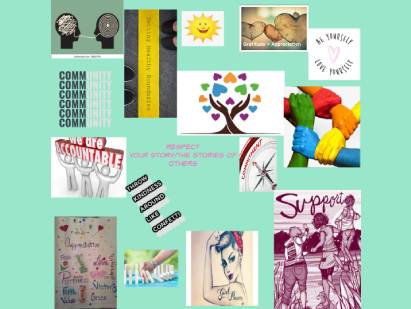 The Women’s Project (TWP) is a community whose collective work serves as an alternative to pre-trial detention and incarceration. Born out of conversations seeking ways to permanently decrease the number of women detained in city jails and state prisons, it is part of a larger partnership between Wildcat/The Fedcap Group, public defenders, and district attorney offices in Manhattan, Brooklyn and the Bronx.
The Women’s Project (TWP) is a community whose collective work serves as an alternative to pre-trial detention and incarceration. Born out of conversations seeking ways to permanently decrease the number of women detained in city jails and state prisons, it is part of a larger partnership between Wildcat/The Fedcap Group, public defenders, and district attorney offices in Manhattan, Brooklyn and the Bronx.
A community of shared experience and expertise, TWP aims to create a space that “stops the noise that often prevents women from finding their individual power, the power that will help them live the lives they want and make their dreams real, no matter what challenges await,” said Valentina Morales, Senior Director of Justice Initiatives and Director of TWP.
Women are generally referred to TWP while they are detained. Working together with staff, community members focus on overall wellness, accessing services and resources related to health, healing and recovery, as well as furthering economic stability and building strong community support. A core tenet of TWP is building positive communications among community members, who learn together and grow together.
“Each of us anchors our steps toward sustained growth in strong community. Arrest and detention bring a cadre of consequences that make daily life increasingly difficult and can complicate our ability to fully participate in our defense and the process. It makes a real difference to have a community of support. Women who join our community make a commitment to take the best care of themselves so we, in turn, can take care of one another,” Valentina said.
Caring for oneself in the TWP community includes individual work that supports personal growth, collective educational and therapeutic work in groups, as well as a range of community-building activities. All TWP self-care workshops are structured around the 8 interrelated dimensions of wellness. To that end, the monthly TWP calendar is a busy one that features group work every day of the week. The monthly calendar consists of educational workshops on wellness practices related to physical, emotional and spiritual health; weekly CBT groups, adapted for cultural relevance; processing through art, writing and poetry; mindfulness; somatic interventions for addressing trauma’s impact on the body; healthy eating; exercise breaks; and, more. There is a popular book club hosted by the New York Public Library, where women across the community, including incarcerated women, explore the writings women- identifying authors.
There is also a self-advocacy series which focuses on developing effective advocacy skills and learning the rules of the specific systems which often impact community members. Additional community-building events such as open mics, collective community service projects, community vision-boarding, value quilting and civic engagement discussions, round out the monthly schedule. The TWP community puts out a monthly newsletter to keep all members of the community connected. It has been described as a lifeline by incarcerated community members and often includes poetry, member profiles, workshop recaps, and recognition of important events such as Women’s History Month. The community also publishes a quarterly zine, The Sassy Source, featuring artwork and creative writing by community members.
“For many of our community members, assumptions have been made about what they can and cannot do. They are not necessarily asked to contribute their knowledge, wisdom and talents to communal space,” Valentina said. “At The Women’s Project, we don’t wait to be asked or included. We are creating these things for ourselves, and, in so doing, creating an opportunity for women to find, articulate and grow those things they love about themselves. In our space, the individual power, wisdom and beauty of our members shine through.”
An ongoing focus of the TWP community is the exploration of individual visions and goals, and defining a collective vision. Together, TWP members have created community guidelines and agreements, as well as a community values quilt and community vision board. Staff are part of the TWP community. There are quarterly meetings led by participants, and constant feedback to ensure that all members can contribute to the collective voice of the community. Throughout the pandemic, TWP meetings have migrated to Zoom, and have proven to be highly successful; members are meeting more frequently than before the pandemic. All women are provided with cell phones. The meetings have had significant participation, but in such a close- knit, connected community, they are no substitute for meeting in-person.
“It has not been easy, and the longer it goes on the harder it is,” Valentina said.
Crucially, TWP’s staff understand and appreciate how trauma manifests in the lives of women. Staff members engage in consistent training and reflection, analyzing their own positionality to best support women in the community. Staff bring themselves to the work but are careful not to get in the way. This assists in being responsive to women’s individual needs, and carving the space for community members to individually define success.
“We are women of purpose who believe in the power of possible. Our members are phenomenal women who are very rarely described that way. Too often, they are defined by negative elements of their experiences or compromising choices they may have made. The Women’s Project provides a space where we can focus on individual growth and celebrate incredible resilience. It is one where gifts and talents can thrive.”